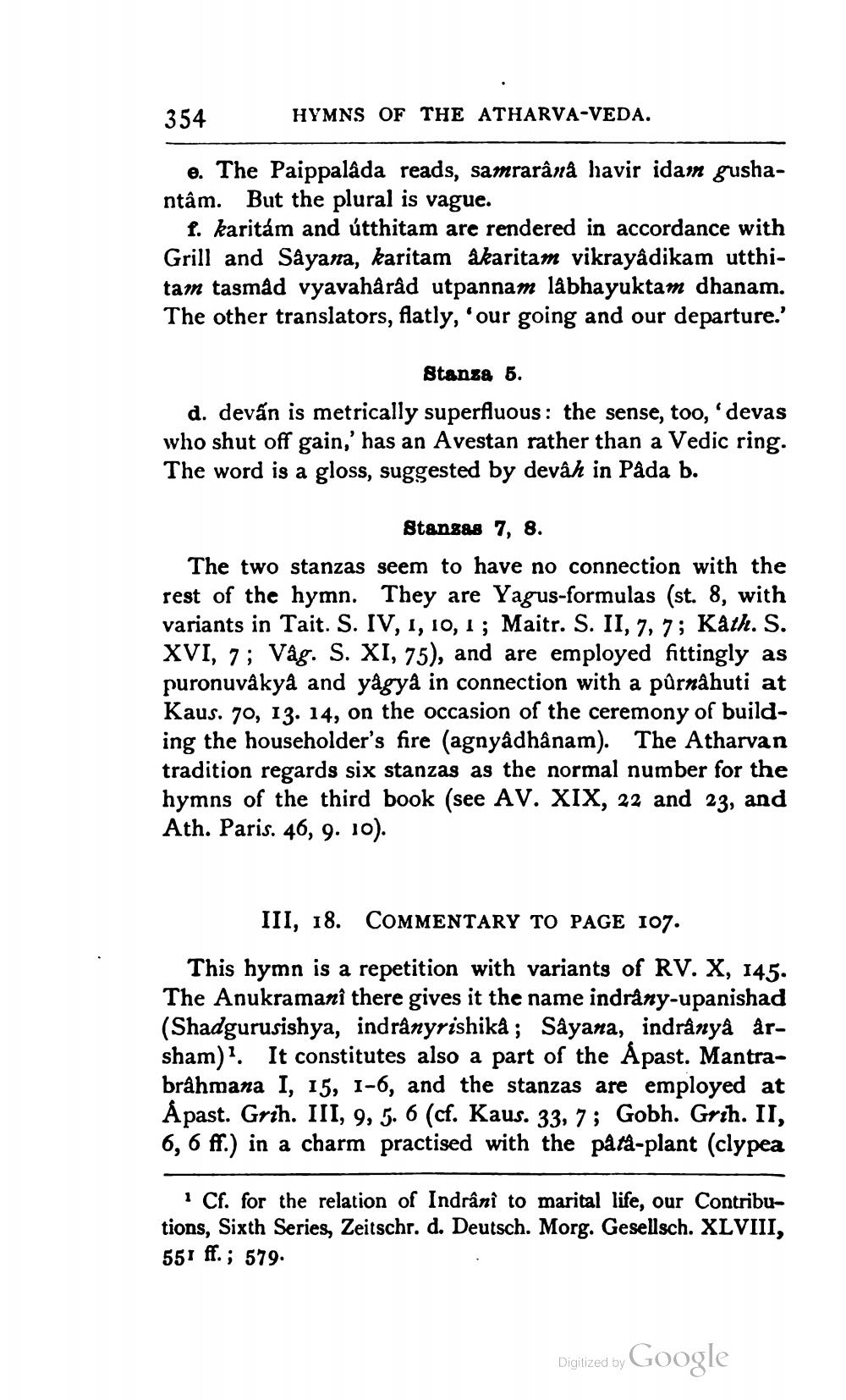________________
354
HYMNS OF THE ATHARVA-VEDA.
0. The Paippalâda reads, samrarânå havir idam gushantâm. But the plural is vague.
f. karitám and útthitam are rendered in accordance with Grill and Sayana, karitam akaritam vikrayâdikam utthitam tasmad vyavahärad utpannam labhayuktam dhanam. The other translators, flatly,'our going and our departure.'
Stanza 5.
d. deván is metrically superfluous: the sense, too, 'devas who shut off gain,' has an Avestan rather than a Vedic ring. The word is a gloss, suggested by devâh in Pada b.
Stangas 7, 8. The two stanzas seem to have no connection with the rest of the hymn. They are Yagus-formulas (st. 8, with variants in Tait. S. IV, 1, 10, 1; Maitr. S. II, 7, 7; Kath. S. XVI, 7; Våg. S. XI, 75), and are employed fittingly as puronuvâkyâ and yágyå in connection with a půrnâhuti at Kaus. 70, 13. 14, on the occasion of the ceremony of building the householder's fire (agnyâdhânam). The Atharvan tradition regards six stanzas as the normal number for the hymns of the third book (see AV. XIX, 22 and 23, and Ath. Paris. 46, 9. 10).
III, 18. COMMENTARY TO PAGE 107.
This hymn is a repetition with variants of RV. X, 145. The Anukramani there gives it the name indråny-upanishad (Shadgurusishya, indrânyrishikâ ; Sâyana, indrånyà arsham)". It constitutes also a part of the Apast. Mantrabrahmana I, 15, 1-6, and the stanzas are employed at A past. Grih. III, 9, 5. 6 (cf. Kaus. 33, 7; Gobh. Grih. II, 6,6 ff.) in a charm practised with the pâtà-plant (clypea
* Cf. for the relation of Indrânî to marital life, our Contributions, Sixth Series, Zeitschr. d. Deutsch. Morg. Gesellsch. XLVIII, 551 ff.; 579.
Digitized by Google




